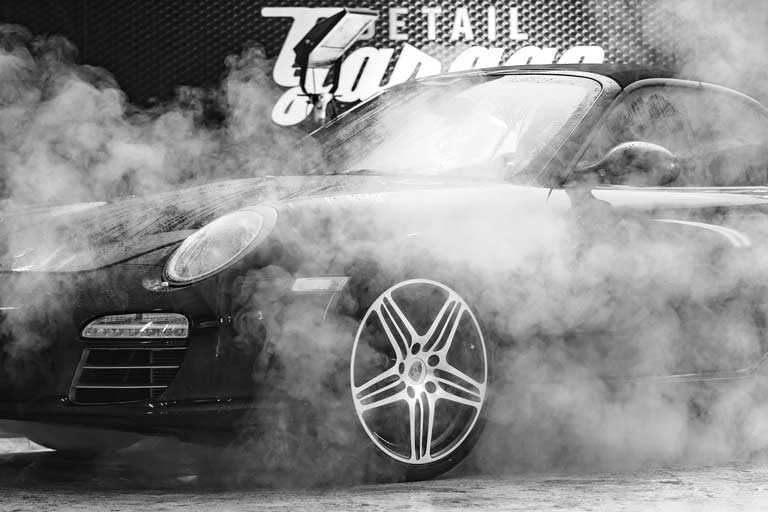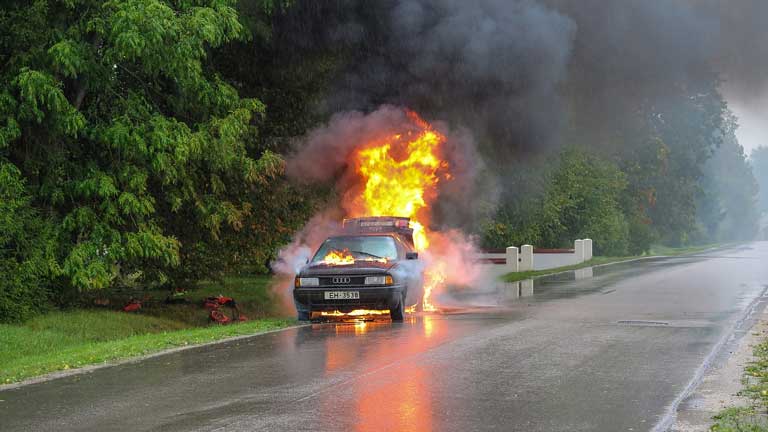
Overheating car engines can become a nightmare in the highway. Engine overheat is a sign of malfunctioning parts of the car and requires immediate attention before it gets too late.
If you are experiencing any of these issues, you may have an overheated engine-
Signs of an Overheated Engine
- Too much heat congestion in the engine can create steam under the hood. If you see steam or smoke coming out of the hood, you are in trouble.
- See the engine temperature meter. If it spikes to red or ‘H’, you have an overheated engine.
- Smell coming out of the engine is another sign of an overheated engine. You may experience sweet or burnt oil smell. Either way, these are signs of an overheated engine and you need to take immediate action to save the car.
Immediate Actions to Take When Your Car Engine is Overheating
Now that your car engine is heated, you need to cool it down as fast as possible. To make things cool and smooth, follow these one by one-
1. Shut the air conditioner off immediately. AC puts heavy pressure on the engine and you need to reduce the pressure from it to cool it down.
2. Turn on the Heater, yes you read it right. Turn on the heater to pull away from the heat from the engine.
3. As you turn on the heater, the interior may become uncomfortable. To minimize discomfort, open the windows, and allow the air to pass through.
4. If you experience no or very little improvement, shut the engine off and allow time to cool the engine down.
Things to Keep in Mind after the Car Overheats
1. If your car is overheating, don’t drive. Park the car or put it in neutral. Driving with an overheated car can damage your engine that may cost you thousands of dollars to fix.
2. People often pour water as soon as they see steam coming from the hood. Don’t do that please! Following the above-mentioned steps should cool down your engine slowly. If nothing is working, you have the option to shut the engine off completely.
3. Don’t ignore the overheating issue. Following the tips will make your engine feel normal for a moment but driving the car ignoring the issue may have a fatal impact on your car engine life. You must inspect what caused the issue and fix it.
Common Reasons Behind Car Heating Problems
Now that you are calm as your engine cools down after putting so much effort. Here are some of the reasons that may have caused the issue-
1. Leak in the Cooling System
Almost 60 to 70% of the car engine heating issue occurs because of the leaks in the engine cooling system. Having leaks in any part of your car engine cooling system can make the engine hotter than normal. So, start inspecting from the engine cooling system.
2. Thermostat Failure
The thermostat monitors the engine temperature and passes coolant when it is necessary. If your cooling system is leak-free, the second thing that may have caused the heating issue in your car engine is the thermostat failure.
3. Damaged or Clogged Radiator
The radiator passes heat from the engine to keep your car cool. If it is damaged or clogged, it becomes incapable of transferring heat from the engine. So, it is another major cause that may have happened to your car.
4. Other Causes
Apart from these common causes, many other causes can make your engine boiling hot. To know the main reason behind the problem, you need to take your car to any repair shop.

How to Prevent Engines From Overheating?
Engines overheat because of the malfunction in the engine itself or other related parts. You can prevent your engine from suddenly overheating by regularly inspecting the parts.
Parts deteriorate over time and you need to replace them with fresh ones. When you skip the regular clean up and inspection of your car, you risk your car.
Taking immediate action after Engine overheating can save you from spending thousands of dollars in repair. You may have parts damaged costing 100 bucks, but ignoring that may lead to permanent damage to the engine.
So, three things to keep your car healthy-
- Inspect & Service the Car Regularly
- Take immediate actions when anything goes wrong, and
- Be vigilant when driving the car so that you can take steps as soon as anything malfunctions.